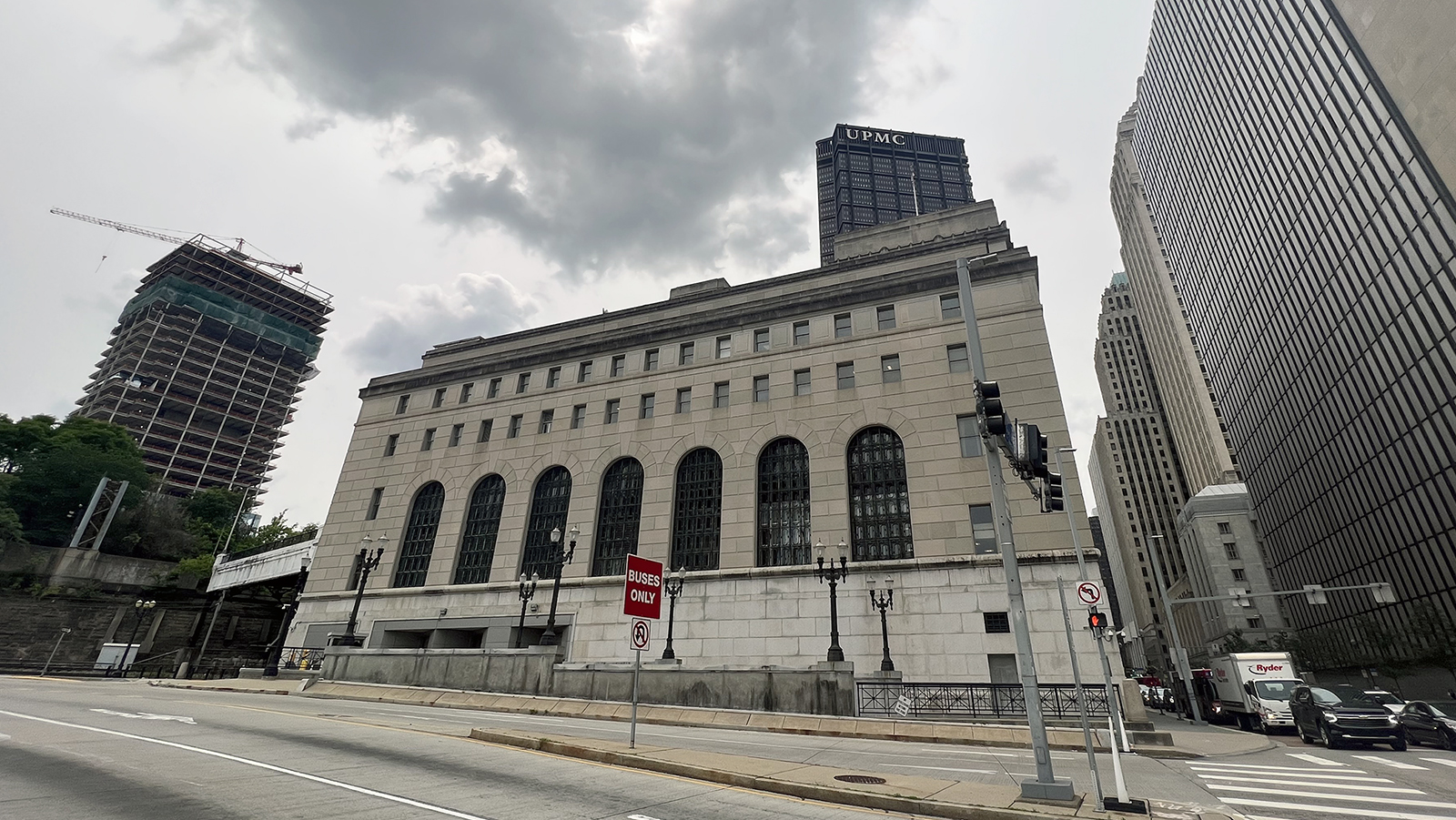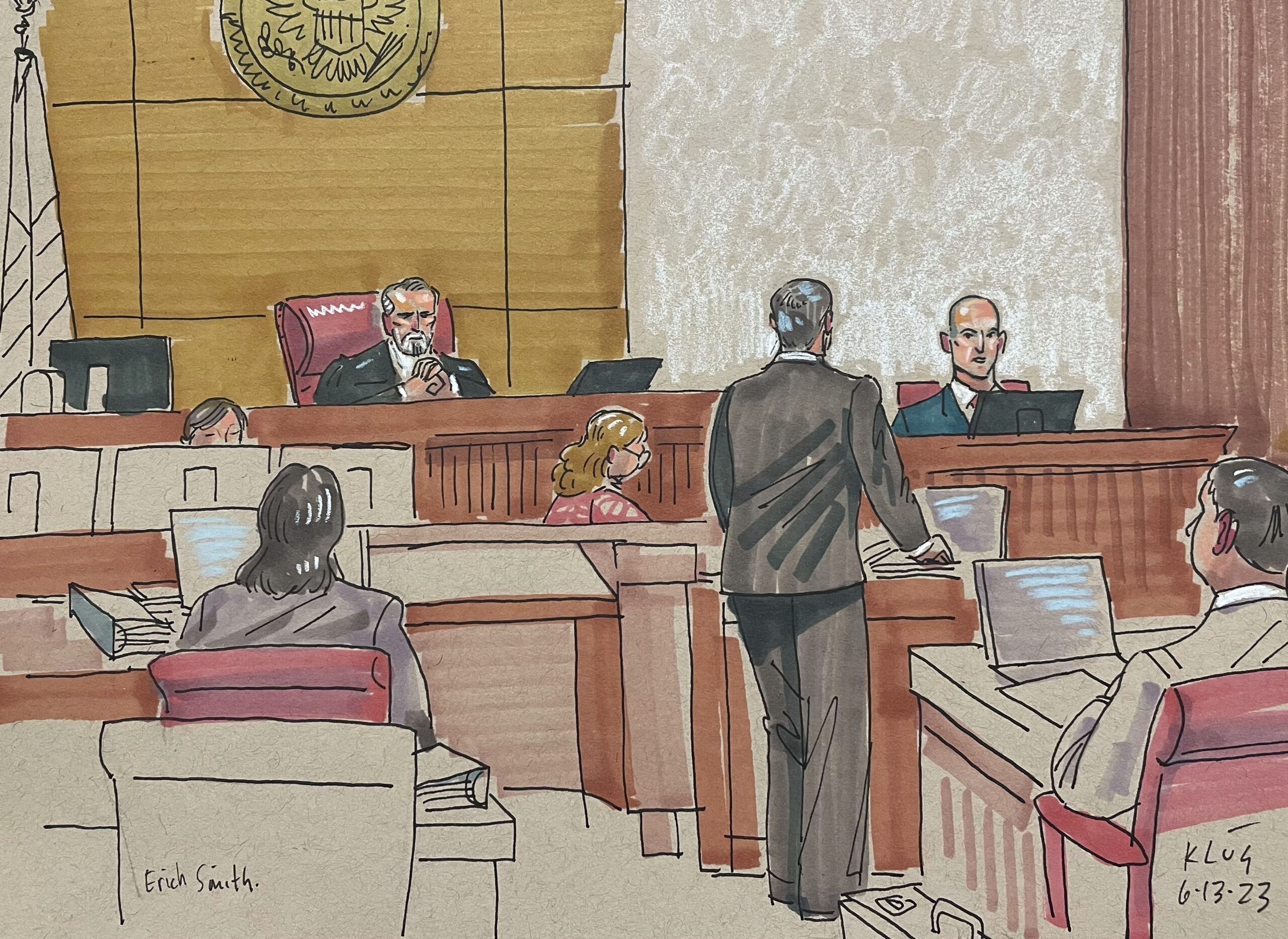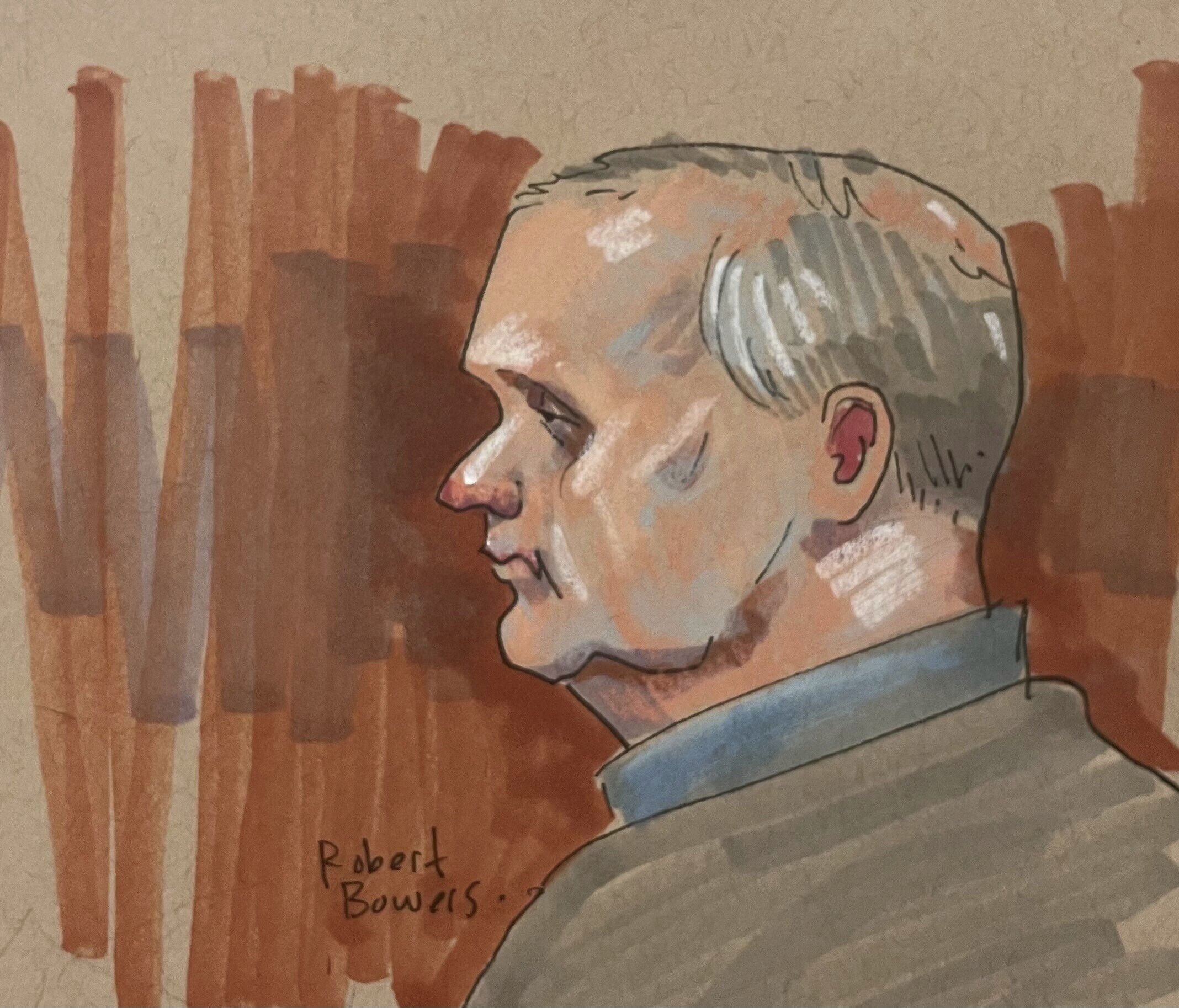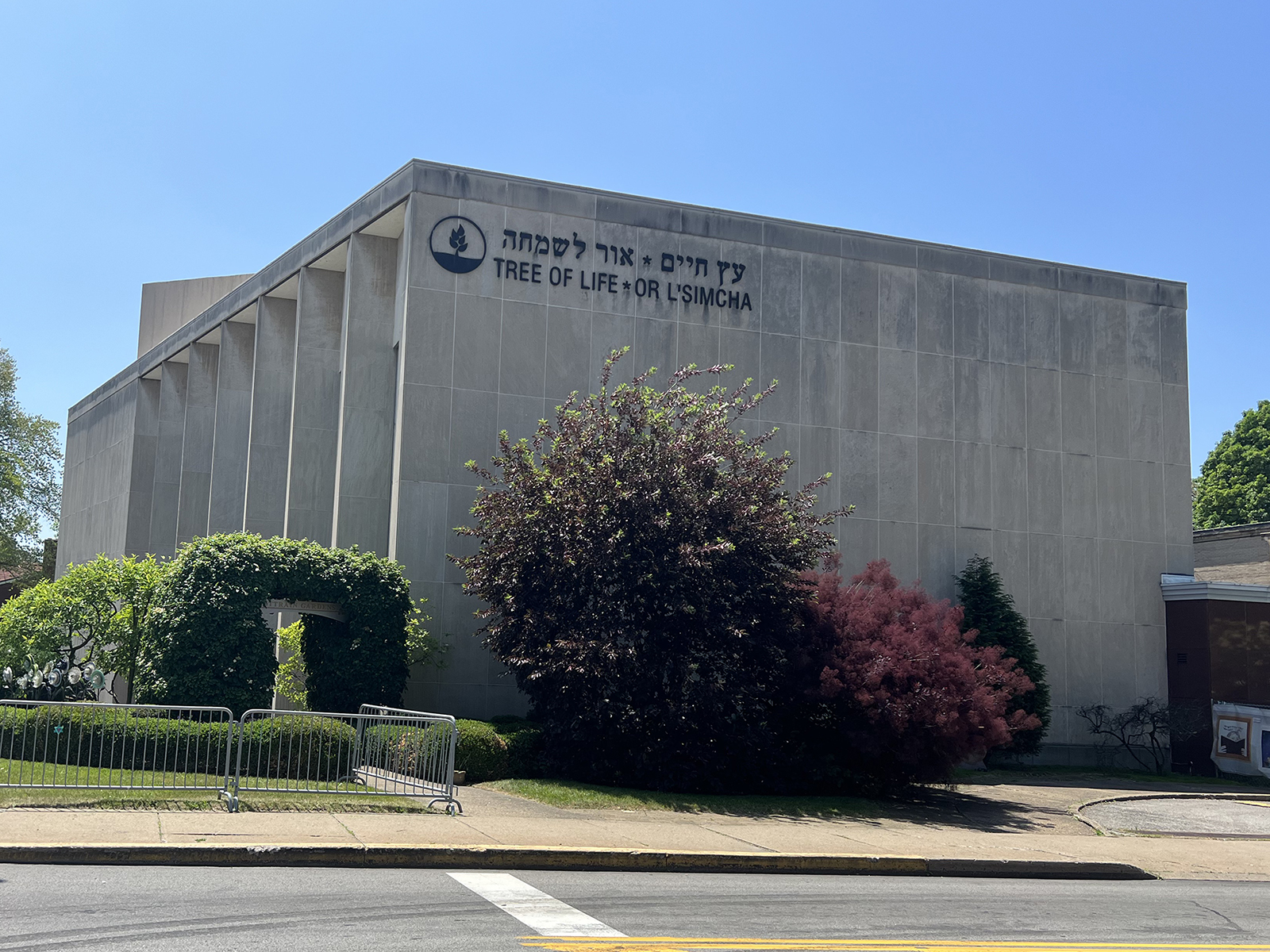
The Joseph F. Weis, Jr. U.S. Courthouse in Pittsburgh, Thursday, June 15, 2023. RNS photo by Kathryn Post
PITTSBURGH (RNS) — Just over two weeks since the Pittsburgh synagogue shooting trial launched at a federal courthouse in downtown Pittsburgh, the prosecution and defense delivered their closing arguments of the death penalty trial to a courtroom packed with media and victim family members.
The prosecution insisted that antisemisitm was the core motivation of defendant Robert Bowers’ 2018 shooting of 11 worshippers at the Tree of Life Synagogue in Pittsburgh, while the defense suggested Bowers was motivated by a narrow and “nonsensical” fear and hatred of HIAS, a Jewish refugee resettlement organization that partnered with one of the congregations that held worship at the Tree of Life Synagogue.
“In this case, every action taken by the defendant, his words, his plan, overwhelmingly proves that he did act with hate,” stated prosecutor Soo Song during the prosecution’s closing argument. “The defendant committed a mass murder in a synagogue and turned that sacred house of worship into a place that was defiled and littered with bloodied prayer shawls, blood-soaked prayer books and 11 deceased congregants.”
Song’s methodical, graphic closing argument began with the location of each of the victims the morning of October 27, 2018, and systematically walked through each phase of Bowers’ attack. Addressing the jurors directly, she set the stage by characterizing the Tree of Life Synagogue as a “sanctuary.”
“It was a safe place to build bonds of friendship, where people cracked jokes, where they got married … where they prayed, worshipped and honored their Jewish faiths.”

In this courtroom sketch, Erich Smith testifies Tuesday, June 13, 2023, in Pittsburgh, in the federal trial of Robert Bowers. Bowers is accused of shooting to death 11 worshippers in a synagogue more than four years ago, the deadliest antisemitic attack in U.S. history. (David Klug via AP)
She described how Melvin Wax, 87, called the New Light congregants to prayer by reading from the Psalms, while upstairs, in the Tree of Life service, David Rosenthal took his spot at the bimah to lead the Torah reading — a passage from Genesis about Abraham and Sarah welcoming strangers into their home.
“That day, a stranger came into the home. But that stranger did not come to pray, that stranger did not come to worship. That stranger came to kill. He turned a sacred place of worship into a hunting ground,” said Song.
She called the defendant’s actions “cold, calculated and deliberate,” saying he pursued victims room by room, floor by floor, shooting them with a high-powered AR 15 rifle.
“You know why he did it,” said Song. “In his own words, all these Jews needed to die. Jews are the children of Satan,” she said, referencing Bowers’ words to a SWAT operator and law enforcement after the shooting.
Song described how the defendant shot 69-year-old Irving Younger three times and later shot Richard Gottfried, 65, seven times. TV screens in the courtroom displayed separate photos of Younger and Gottfried’s bodies, face down in their own blood, prayer shawls still wrapped around them. Song also recalled how Bernice Simon pressed a prayer shawl onto the gun wounds of her husband Sylvan Simon in a vain attempt to stop his bleeding, waiting for relief until the defendant circled back and shot and killed her, too.

In this courtroom sketch, Robert Bowers, the suspect in the 2018 synagogue massacre, is on trial in federal court on Tuesday, May 30, 2023, in Pittsburgh. Bowers could face the death penalty if convicted of some of the 63 counts he faces in the shootings, which claimed the lives of worshippers from three congregations who were sharing the building, Dor Hadash, New Light and Tree of Life. (David Klug via AP)
Song noted that Bowers had several chances to stop his “rampage”: while pausing to reload weapons, when the police arrived, when passing the bodies of his earlier victims in the hall. When he finally stopped shooting, it wasn’t out of remorse, she said, but because he ran out of ammo. Song described how Bowers boasted to police officers that he “had done this thing all on his own,” and told a SWAT operator that “all Jews needed to be killed.”
Song added that the tragedy wasn’t the result of a spur-of-the-moment impulse, but argued it was an act that unfolded out of Bowers’ “deep” and “longstanding” hatred for Jews, as evidenced by his months of antisemitic posts on the far-right website, Gab.
He “executed them in a house of worship during their prayer service because they were Jewish. He did this after repeatedly, for months, calling for the genocide of Jews,” she argued.
In her closing argument, defense lawyer Elisa Long disputed the prosecutor’s characterization of Bowers’ motivation, calling into question whether he took action to obstruct religious services or religious study. Instead, Long posited his actions were the result of an almost singular focus on HIAS, a Jewish refugee resettlement organization that partnered with Dor Hadash, one of the three congregations that met in the synagogue.
Long pointed to Gab posts in which Bowers attacked HIAS or said Jews had a “mass migration agenda,” and cited a post he made the morning of the shooting, where he wrote that “HIAS likes to bring in invaders that kill our people … I’m going in.” She also referenced scattered statements he made to police about Jews “committing genocide on my people” and “killing our women and our children.”

The Tree of Life Synagogue in Pittsburgh, on June 1, 2023. RNS photo by Kathryn Post
“He was motivated by nonsensical and irrational thought that his actions that day would somehow and in some way either save the lives of children, prevent genocide or prevent immigrants,” said Long.
In a rebuttal, prosecutor Eric Olshan criticized the defense for artificially narrowing the focus of Bowers’ motivation. He insisted that “the defendant hated Jews. He had many reasons. But it all boiled down to one thing: He hated Jews.”
Olshan described how Bowers chose to drive 30 minutes from his home to Squirrel Hill, “the center of the Jewish universe in the Pittsburgh region,” to a synagogue on a Saturday morning, during worship services.
At one point, Olshan, facing the jury, held up two plastic bags containing tattered pieces of Younger’s yarmulke, which was destroyed when Bowers shot Younger in the head.
“These weren’t people who were engaging in refugee assistance. These were people trying to practice their faith.”
Before the closing arguments, Judge Robert Colville spent over an hour giving the jury extensive instructions about their responsibilities while deliberating the 63 charges, to which Bowers has pled not guilty. He dismissed the jury for deliberation around 2:30 in the afternoon.




